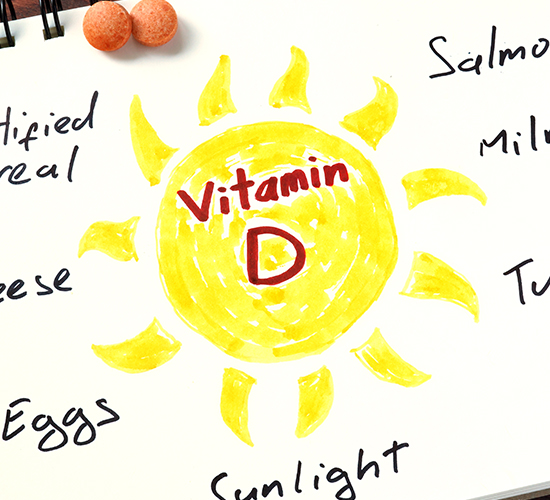Vitamin D Deficiency? You Might Be At A Risk Of Preeclampsia

You might be ecstatic hearing about the news of a little life growing inside of you, and now is the time to have a positive mindset and dream of a great future. However, while you are hopeful of the years to come, you also need to think of the present and care for yourself and your baby. Pregnancy is also a time when many complications may arise. These include high blood pressure, diabetes, infections for the mother and the baby, as well as preeclampsia. And one of the top reasons for increasing the risk of preeclampsia is a lack of vitamin D.
What Is Preeclampsia?
This is a condition that happens during pregnancy as a complication. It is usually recognized by development of high blood pressure in women. Its other symptoms are a high level of protein in their urine and reduced urine, swelling in the hands and feet, sudden and rapid weight gain, pain in the abdomen and severe headaches, excessive dizziness and nausea.
Preeclampsia occurs after 20 weeks of pregnancy and affects almost eight to 10 percent of women. If not taken care it can affect the mother’s vital organs like the kidney or the liver as well as cause miscarriage. It can further be escalated to eclampsia, a critical condition wherein pregnant women start having seizures. For the baby, it can cause problems such as weakness at birth, premature birth, learning disabilities, epilepsy, cerebral palsy, hearing and vision loss, organ damage, and cardiovascular defects and diseases.
Vitamin D & Preeclampsia
The actual cause of this critical pregnancy complication is unknown, however, women with high blood pressure before pregnancy, genetic or prior history of preeclampsia, obesity, and existing diseases such as diabetes, lupus, arthritis or kidney diseases. However, another key risk factor would be a lack of vitamin D.
Vitamin D is essential for regulating and absorb calcium and phosphorus in the body. This is vital during pregnancy, as pregnant ladies need more calcium and nutrients than others. It helps keep the mother healthy and free of aches and pains. If there is a lack of it, the mother can have serious complications or weaknesses in the bones and teeth. It can also cause mood swings and depression in mothers who are already experiencing hormonal issues due to pregnancy. It is also linked to heart diseases and high blood pressure, which increases the risk of preeclampsia by 40 percent.[1, 2]
The best source for pregnant mothers to get vitamin D is the sun, but you can also get it from various foods like oily fish, eggs, and dairy products as well as dietary supplements. It is best to test vitamin D levels and check with your healthcare professional before taking a supplement. An overdose of vitamin D may cause hypervitaminosis, which can cause other complications in pregnancy.
References: